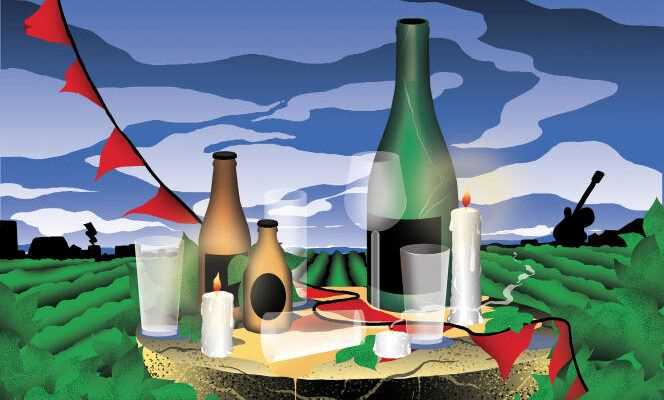What a symbol! This year, the traditional champagne shower on the Formula 1 podium will not take place. Nothing to do with the health crisis due to Covid-19. For the next three years, the bubbles will be Italian. The Ferrari brand, which has only the name in common with the Scuderia, produces a sparkling wine from Trentino, in the northeast of the country. It will replace on the catwalks the confidential Champagne Carbon, which itself took over from giants like Mumm or Moët & Chandon.
In sport, and more rarely in culture, contracts with alcohol brands come and go over the years. Logos are almost invisible on television, which blurs them, especially in France, where the Evin law of 1991 prohibits any communication on the subject, including claiming partnerships or sponsors, under penalty of substantial fines. On the other hand, the bottles flow freely behind the scenes, to water the victory but also in the private boxes of the stadium, or on the side of festival-goers. This is where brands come together, less in financial benefits than in notoriety.
The brand owners prefer to be silent on this subject. Or talk about it with a grain of salt. This is the case of Heineken, the exclusive beer supplier for the Football Champions League and Formula 1, also present in rugby and music festivals. “We have long advocated responsible drinking, as evidenced by the ‘When you drive, never drink’ campaign, explains Hans Erik Tuijt, Director of International Sponsorship at Heineken, from the Netherlands. We use F1 to reach millions of people with this bold message. “
Taittinger champagne, official supplier of the Football World Cup, plays on another register: “We don’t easily associate football and champagne, recognizes Vitalie Taittinger, at the head of the house. Except that these two fields share an image of universality, linked to popular culture, a powerful and generous emotion. Without forgetting the same teamwork. An energy too. “
Colossi and behemoths
In France, because of the Evin law, brands sometimes believe that the game is not worth the candle. Piper-Heidsieck champagne withdrew from the Cannes Film Festival this year, after twenty-seven years of partnership. A withdrawal unrelated to the health crisis: the investment would be too large for almost zero influence with the public. The director, Benoît Collard, refocused Piper-Heidsieck on the Oscars, in order to “Highlighting the history of the house in resonance with the world of cinema and Hollywood since the 1930s”, and the Australian Open tennis tournament, “The first major sporting event that was able to find a partial audience despite the Covid-19 crisis”.
You have 68.22% of this article to read. The rest is for subscribers only.
